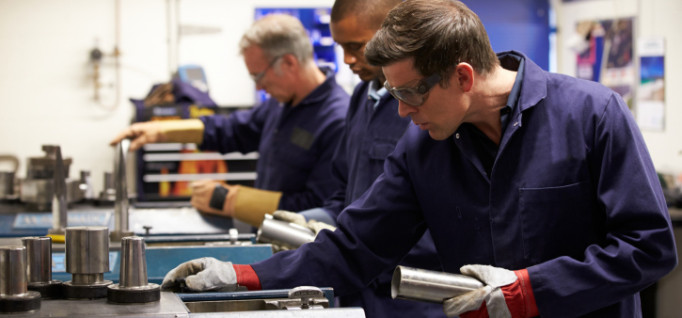Building a Better College-to-Career Pathway
By Cam Preus
September 16, 2014
In an era of vast economic change, colleges must evolve to meet the needs of students and employers in search of new job opportunities.
The rapidly changing job market demands a dynamic response from our education system.
At Oregon’s Blue Mountain Community College (BMCC), where I serve as president, we are laser-focused on creating effective college-to-career pathways for students.
Our Career Pathways initiative takes a systemic approach to supporting students and connecting them with employers. Whether it’s working with students and career advisers or creating industry partnerships and collaborations with local high schools and neighbor colleges, BMCC is constantly adapting its job-training programs to meet the needs of regional businesses and employers.
We’re not alone. Across the country, community colleges are coordinating with industry partners, building and reconstructing job-training programs to meet the needs of a rapidly changing, increasingly high-tech economy.
Those of us engaged in this tough, but critical work know that systemic change is not easy; it requires time and dedication. As part of the Oregon Pathways Alliance, leaders from each of the state’s 17 community colleges meet quarterly to share promising practices, leverage resources and learn from each other’s mistakes.
I’m pleased to share a couple of recent student success stories with you from our diesel technology program:
- 52-year-old Todd. Facing the elimination of his job in the timber industry, Todd began researching new careers that would match his interests and skill set. He applied for BMCC’s diesel technology program. Now in his second year in the program, Todd has a cooperative work experience internship with a local Caterpillar dealer and hopes to find work with the company upon graduation.
- Service member Josh. An eight-year veteran of the National Guard, Josh is in his second year in BMCC’s diesel technology program. Despite having no prior mechanical training, Josh now leads a contact team in the Idaho National Guard responsible for maintaining heavy equipment and trucks.
The term “student success” means many things to many people. At BMCC, as at many community colleges across the country, success means getting each and every student who walks through our doors ready to enter the workforce, earn a family-sustaining wage and do their part to strengthen our economy.
In Oregon, recent research suggests our efforts are working. In just a few short years, our community colleges have:
- Awarded more than 7,600 short-term, stackable certificates (2008 to 2013)
- Developed and offered more than 400 short-term, stackable certificates
- Created more than 400 online Career Pathways roadmaps for use at all 17 of the state’s community colleges
- Developed more than 400 online Programs of Study connecting local high school courses to community college programs
Still, there is need for improvement. Community colleges nationwide must continuously adapt to changing employer needs. The more our colleges can continue to share with each other, the better we’ll be at helping students chart that all-important path from our local campuses to successful careers.
What initiatives does your college have to create better college-to-career pathways for its students? Tell us in the Comments.











